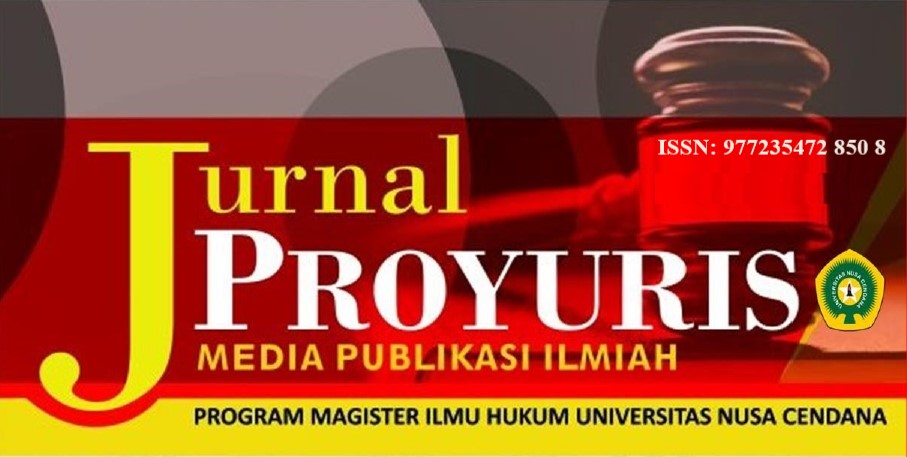RATIO LEGIS PENGATURAN TENTANG ANAK SAKSI YANG MEMBERIKAN KETERANGAN TANPA DISUMPAH DALAM PEMERIKSAAN PERKARA PIDANA
Abstract
ABSTRACT: Child witnesses who are not yet 15 years old have never been married and have not been sworn in during a criminal case examination certainly do not meet the formal requirements as witnesses at trial, even though the material requirements have been met, namely that the testimony is the only testimony that has been personally experienced, felt and seen. himself by the Child Witness. If so, what is the Ratio of Legislative regulation regarding Child Witnesses who give statements without being sworn in during the examination of criminal cases and does the Child Witness's statement have juridical force as evidence as in the case found at the Oelamasi District Court in case No. 5/Pid.Sus/2022/PN Olm, No. 53/Pid.Sus/2022/PN Olm and No. 107/Pid.Sus/ 2022/PN Olm? The aim of this research is to analyze the Legislative Ratio regarding child witnesses who give statements without being sworn in during criminal case examinations and have juridical power as evidence. The method used is normative juridical with a statutory approach, case approach and conceptual approach. The data sources used are primary and secondary data sources and the data analysis technique used is prescriptive analysis.
Based on the results of research and analysis carried out by the author, Ratio Legis regulates Child Witnesses who provide testimony without being sworn in during criminal case examinations, providing protection for Child Witnesses aged 15 years to those who are not even 18 years old to provide testimony under oath in front of the trial because they are considered competent. and can be accounted for in its truth and fulfills the formal requirements of the trial. The testimony of a child witness given without an oath is legally not a valid piece of evidence, even though the statements given without an oath are in agreement with each other, they are still not evidence so they do not have the power of proof that can fulfill the formal requirements as evidence. legitimate. Therefore, it is necessary to draft a legal regulation that regulates Child Witnesses who give statements without being sworn in so that they can be clear and complete so that they can fulfill the formal requirements in a trial and can fill the legal vacuum in the regulation of Child Witnesses. If necessary, reforms will be made to the Criminal Procedure Code and the SPPA Law.
Keywords: Ratio Legis, Statement, Child Witness, under 15 years of age, oath, strength of evidence, and formal requirements.
Downloads


 Lilly Florian Otemusu(1*)
Lilly Florian Otemusu(1*)
